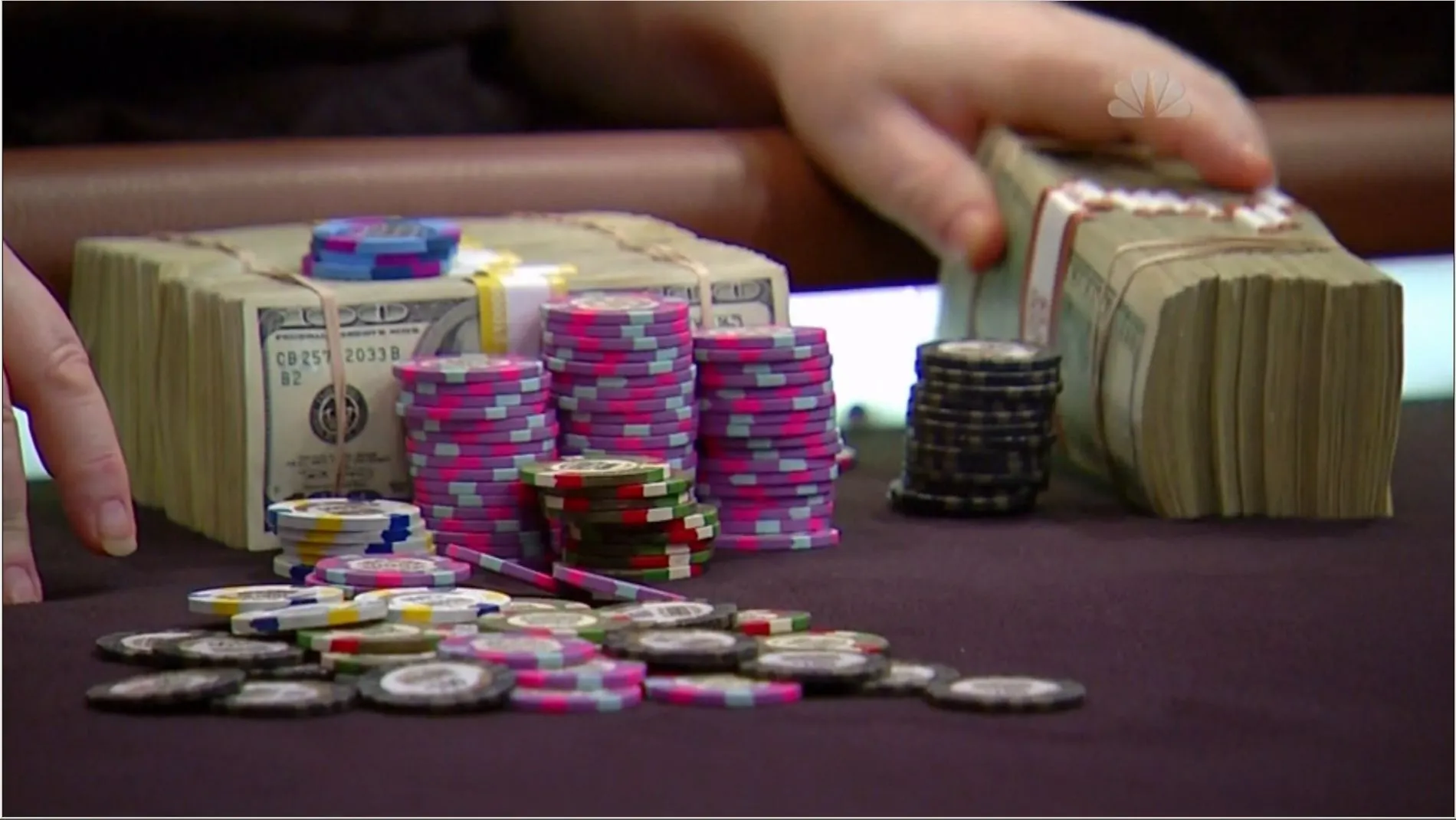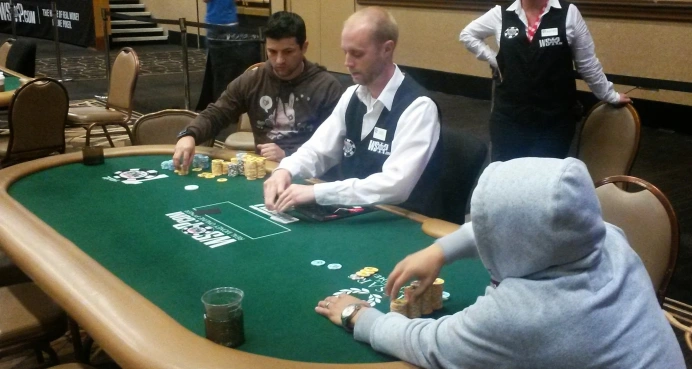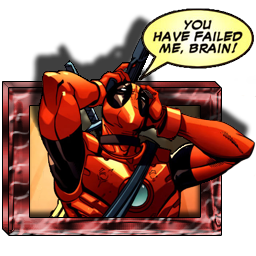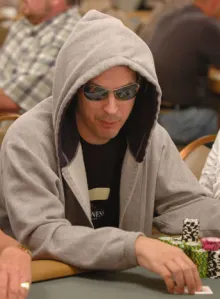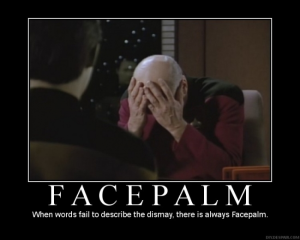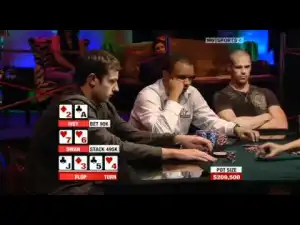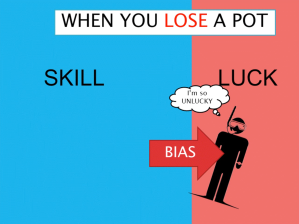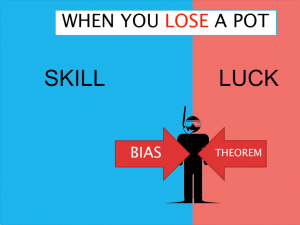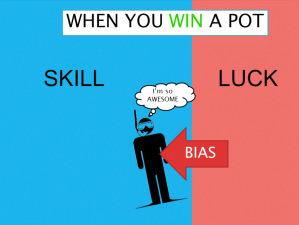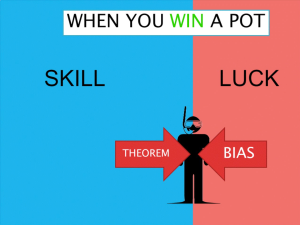One of the many reasons why poker is a
good rationality training game is that it contains randomness, and thus
requires probabilistic thinking. We humans are very bad at such
thinking. For example, our emotional associations are, by default,
about outcomes (post-randomness) rather than decisions (correct
pre-randomness strategy). In other words, if we make a bad decision and
get lucky, the winning is interpreted by the brain as positive
feedback, and we will tend to repeat the behavior. Over time, this may
average out, but it makes the learning process much slower.
Below, poker professional & Less Wrong reader Taylor Raines discusses techniques for focusing on decisions rather than outcomes.
An earlier post says that the goal of poker is to gain utility,
in terms of winning money. While this is the goal of the game, I
believe that a more practical goal to have as an individual at the table
is to make good decisions. Plenty of things will happen at a poker
table that are beyond your control, and sometimes making good decisions
isn’t enough to win the money, but over time the money will flow to the
players that make the best decisions.
One of the problems, however, is that the
reward mechanism is tied into winning money, not making good decisions.
It’s easy to feel good when you win, and frustrated when you lose,
regardless of the correctness of your choices in a hand. So take steps
to rewire yourself. I spent a long time convincing myself to feel good
when I played well, and frustrated when I played poorly, regardless of
the outcome. One of the keys to this was finding situations of
domination. Did I put a lot of money into a pot where I was dominated
(especially when I was shown a better kicker), whether I won or lost?
Should I feel good about a pot where I put in a lot of money as a big
favorite, but lost due to bad luck? Personally, the former was easy,
and I was able to correct my game to avoid dominated situations since
the feedback was in sync most of the time, but I had trouble shaking the
feeling of losing when I did just about everything right and lost.
So I turned to a different reward
mechanism. If I lost a pot, but upon analysis decided I had played it
well, I’d have a few honey roasted peanuts, altering some of my own
reward mechanism. But if I decided I had made an error at any point in
the hand, no peanuts. By rewarding myself only when I made good
decisions, and ignoring the money, I became a much better and more
focused player. And over time as I made better decisions, the money
flowed.
Even now, after each session I will review
my play, and see if I can find any errors. I tend to still find one or
two per session, and it’s important to analyze the winning hands as
well. It’s easy to think you played a hand correctly when you win it,
but thinking about whether there were opportunities to make more money
in a hand made me change a few of my tendencies, and help maximize my
bottom line.


